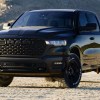
Ford Appears Ready to Admit Defeat on More Competitive Vehicle Segments
Ford make quite the splash in 2018 when it announced the company would no longer be selling sedans in the U.S. Five years later, and it looks like the American automaker could also be preparing to pull out of other vehicle segments and further streamline its lineup.
Ford could pull out of the ultra-competitive small SUV segment
The compact SUV class is flooded with options, but Ford may no longer be a player in the fray. Kelley Blue Book reported Ford CEO Jim Farley told investors May 22 the brand may limit its presence in segments in which it trails the competition. The Associated Press reported Farley said the company will “reduce investment in hypercompetitive market segments,” using the two-row SUV class as an example.
For 2023, Ford offers the Escape and Bronco Sport within the two-row SUV class, along with the Lincoln Corsair that shares much of its underpinnings with the Escape.
The Bronco Sport and Escape are hardly sales duds—137,000 Escapes were sold in 2022 with nearly 100,000 Bronco Sports moved—but these models are still far behind segment leaders. The Mazda CX-5, Hyundai Tucson, Nissan Rogue, Honda CR-V, and Toyota RAV4 all moved in greater numbers than Ford’s models. The CR-V and RAV4 each sold more than the Escape and Bronco Sport combined.
Farley’s comments suggest Ford may no longer willing to play fifth fiddle behind these Japanese and Korean models. But is the company waving the white flag and admitting it would rather pull out of the compact SUV versus lag behind its competition? Or is the automaker allowing itself to further invest in the automotive classes in which it excels, such as the sport coupe segment with the Mustang or the biggest sales champ of them all, the F-150?
Either way, Ford’s decision to pull out of a major segment is not without precedent.
Ford’s potential move could pay off
It remains to be seen if—or when—Ford could follow up on leaving the small SUV class, but if those plans come to fruition, it could allow the company to further streamline its efforts.
That is particularly notable as Ford hasn’t announced any ambitious overall plans for its electrified era unlike most automakers, save for its recent announcement Ford owners will be permitted to use Tesla’s Supercharger network. GM, meanwhile, is already hedging its bets with the shapeshifting Ultium platform.
Ford’s move, if it comes to fruition, could be somewhat of a repeat of its decision to pull out of the sedan segment. The company hasn’t exactly faltered by not offering sedans since 2019, and that move allowed the company to hone-in on developing electrified F-150s and get its popular Mustang Mach-E out the door that same year.
Ford recently stated it would be “leveraging its iconic nameplates,” and teased a four-door Mustang design sketch. Perhaps Ford would rather concentrate its efforts on maximizing the success of the traditional Mustang and the Mach-E to further expand the ‘Stang lineup.
Discontinuing its small SUVs would certainly make such a move far more viable for the company.
Ford will still have a large share of the larger SUV segment
Ford will still have strong stake in the mid-size and full-size segments with the Explorer and Expedition, respectively, even if it leaves the compact class. The Explorer was the 14th best-selling vehicle of 2022, and the Expedition has far less competition in the large SUV class.



